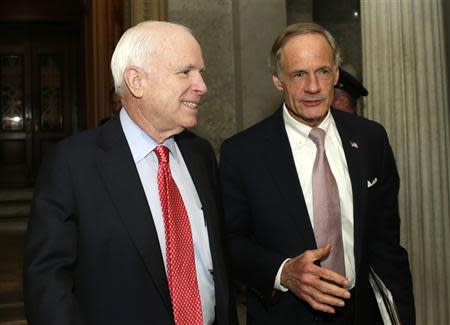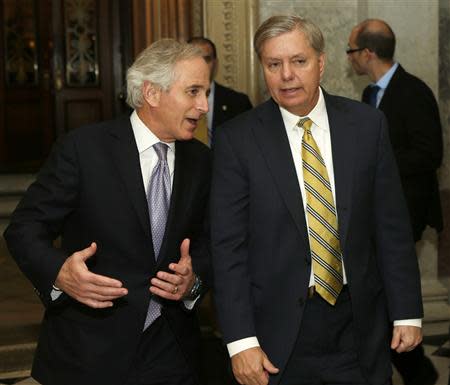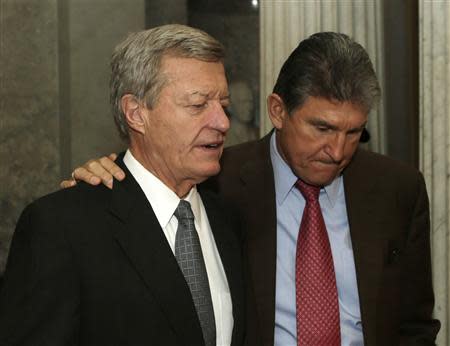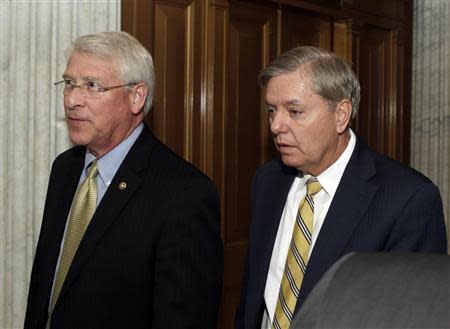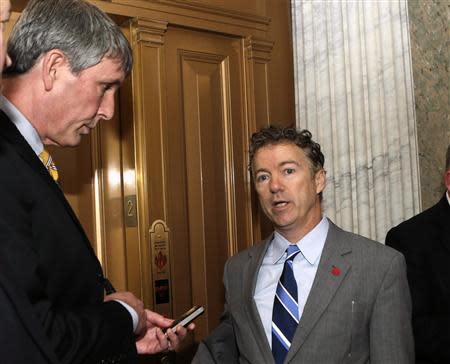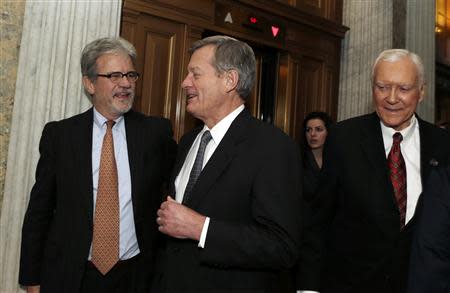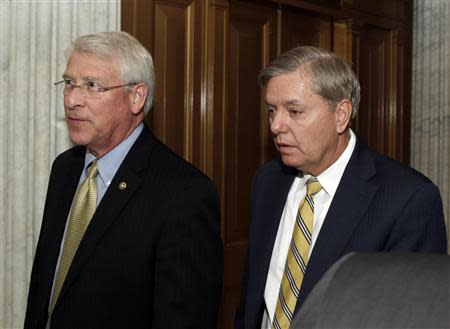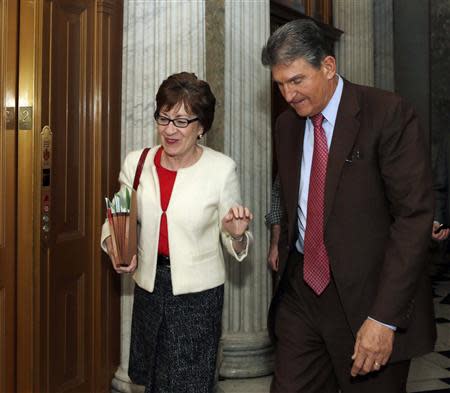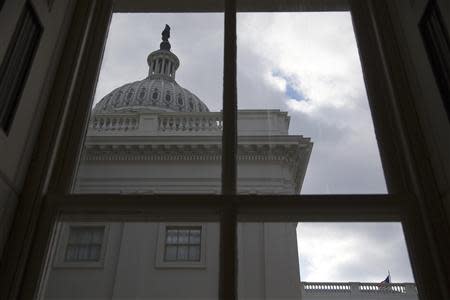U.S. Senate passes budget deal, focus shifts to spending
By David Lawder and Richard Cowan WASHINGTON (Reuters) - The U.S. Senate passed a two-year budget deal on Wednesday to ease automatic spending cuts and reduce the risk of a government shutdown, but fights were already breaking out over how to implement the budget pact. By a vote of 64-36, the Senate sent the measure to President Barack Obama to be signed into law, an achievement for a divided Congress that has failed to agree on a budget since 2009. The deal, passed in the House of Representatives last week by an overwhelming margin, restores overall fiscal 2014 spending levels for government agencies to $1.012 trillion, trimming the across-the-board budget cuts that were set to begin next month by about $63 billion over two years. Now, there will be a mad dash by the House and Senate Appropriations committees to cobble together a massive spending bill that implements the deal and carves up the funding pie among thousands of government programs from national parks to the military. Without the new spending authority, the federal government on January 15 could partially shut down, as it did for 16 days last October. Not surprisingly, one of fights ahead involves funding of President Barack Obama's healthcare law, according to Republican and Democratic aides in the House and Senate. "It's one of many flashpoints," said a House Republican aide who asked not to be identified, adding, "But it's not insurmountable." Republicans are warning that they will not tolerate any increase in funding for administering the troubled healthcare program. Democrats hope to maintain or add small amounts of money for the program they say will provide insurance for millions of previously uninsured people. As is the case with all spending bills in a deeply divided Congress, there are plenty of other disagreements besides the Obamacare funding level. Among the most difficult will be money for the Internal Revenue Service, the nation's tax collector; funds for western wildfire fighting and for the Yucca Mountain, Nevada, nuclear waste repository. Separate battles also could be waged over policy proposals that House Republican leaders are likely to attach to the funding bill. These could include forcing the Obama administration to approve a controversial Keystone oil pipeline from Canada to the U.S. Gulf of Mexico. There also could be moves to stop the Environmental Protection Agency from enforcing carbon emissions regulations that the coal industry hates and to block federal money for building a California high-speed train. Given all of the disagreements, one House Democratic aide familiar with the appropriations process that is under way warned: "Nobody should be getting ahead of themselves; it's not a given that we're out of the woods" in passing the bill that would carry out the budget deal and avoid a January 15 government shutdown. The budget plan negotiated by Democratic Senator Patty Murray and Republican Representative Paul Ryan won overwhelming support from House Republicans, including some of the chamber's most conservative ones. Murray said the deal "breaks through the partisanship and gridlock, and shows that Congress can function when Democrats and Republicans work together to make some compromises for the good of the country." But congressional aides said there nonetheless are worries that some of those conservatives might balk at the prospect of voting for a $1 trillion spending bill that wraps a slew of controversial programs into one gigantic package. "There was broad bipartisan support for the (budget) deal. There should be the same broad bipartisan vote for the package implementing that deal," said the House Democratic aide, adding, "This is a very open question." The House Republican aide echoed those concerns. (Editing by Fred Barbash, Cynthia Osterman and Vicki Allen)

